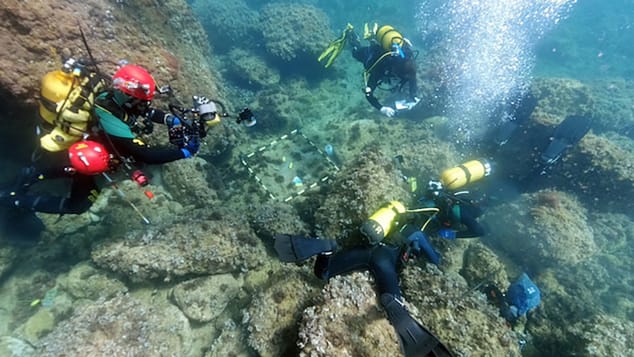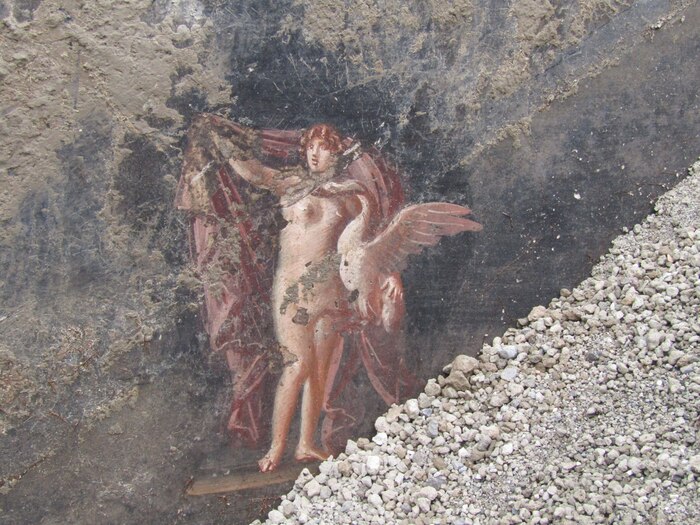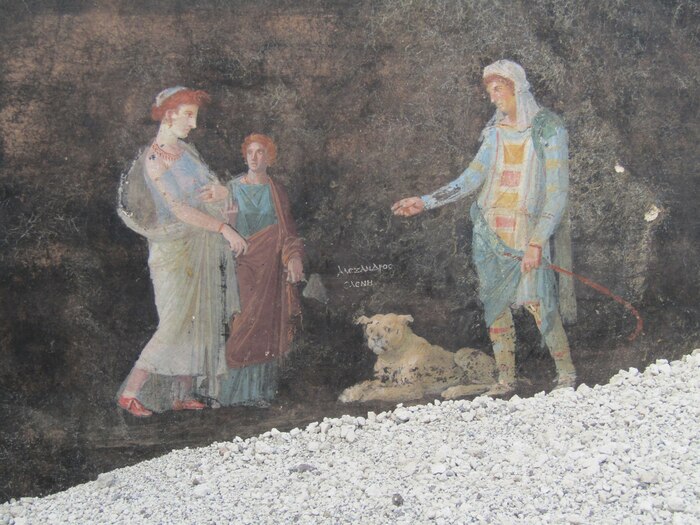This classic car survived a wreck and time 1:14
(CNN) -
Two amateur divers found one of the largest collections of Roman coins in Europe on the east coast of Spain.
Luis Lens and César Gimeno were diving off the island of Portitxol in Jávea on August 24 when they found eight coins, before further dives by archaeologists found another 45 coins, according to a press release from the University of Alicante on Tuesday.
Scientists at the university's Institute of Archeology and Historical Heritage subsequently analyzed the perfectly preserved coins and dated them between the late 4th and early 5th centuries.
"Archaeological" treasures including 2,400-year-old fruit discovered in ancient Egyptian city
The coins were in such good condition that the inscriptions were legible, allowing the team to identify coins from the reign of various Roman emperors.
Three date from Valentinian I, seven from Valentinian II, 15 from Theodosius I, 17 from Arcadius, 10 from Honorius and there is one unidentified coin.
Archaeologists will conduct further excavations at the site in the coming weeks.
University of Alicante
Along with the coins, the divers found three nails, probably copper, as well as traces of lead that could have come from a badly damaged marine chest.
Jaime Molina Vidal, professor of Ancient History at the University of Alicante and head of the team of underwater archaeologists, said that it was one of the largest sets of Roman gold coins found in Europe.
advertising
"It is very significant," Molina Vidal told CNN on Thursday.
"It is enormously valuable."
The coins were likely hidden by a wealthy local landowner who wanted to protect some of his money from the barbarians, who were invading and looting the Western Roman Empire at the time, he added.
"We are facing a fantastic archaeological document from the time when, in this case, the Alans arrived," said Molina Vidal.
The Alans, the Swabians and the Vandals invaded the area in the final phase of the fall of the Western Empire, and the political power of the Romans in the Iberian Peninsula ended in AD 409, the statement added.
A section of Hadrian's Wall found under a busy UK street during construction work
Whoever hid the coins likely died before they could collect them, Molina Vidal said, leaving them undiscovered for about 1,500 years.
Despite their age, they are very well preserved.
"It is as if they were manufactured yesterday," said Molina Vidal, who explained that only one coin is not identifiable, since its inscription is scratched.
The coins will be restored and later exhibited at the Soler Blasco Archaeological and Ethnographic Museum in Xàbia.
Subsequent archaeological explorations in the area will be financed by the local government of Valencia, which will allocate € 17,800 (US $ 21,000) to the team.
The bay of Portitxol is a well-known archaeological site where anchors, amphoras, ceramic remains and other artifacts have been discovered.
Molina Vidal and his team plan to carry out more excavations at the site in the coming weeks to determine if there are sunken ships in the surrounding areas.
romans treasure













